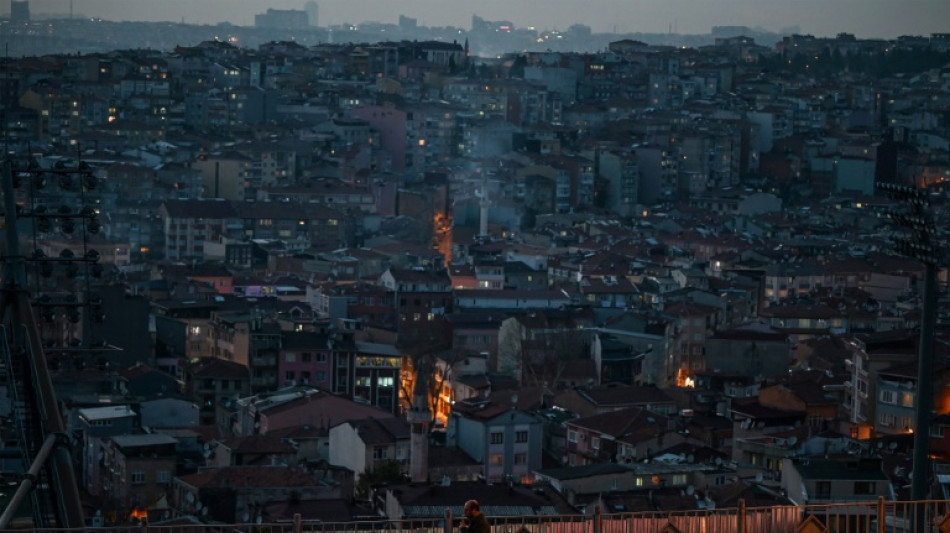
-
 UK counter-terrorism unit probes rappers Kneecap but music stars back band
UK counter-terrorism unit probes rappers Kneecap but music stars back band
-
Yamal heroics preserve Barca Champions League final dream

-
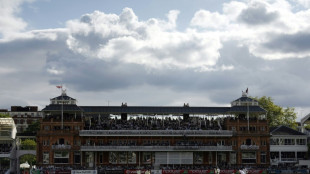 2026 T20 World Cup 'biggest women's cricket event in England' - ECB
2026 T20 World Cup 'biggest women's cricket event in England' - ECB
-
Bangladesh begins three days of mass political rallies

-
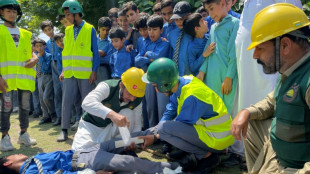 Children learn emergency drills as Kashmir tensions rise
Children learn emergency drills as Kashmir tensions rise
-
Millions of children to suffer from Trump aid cuts
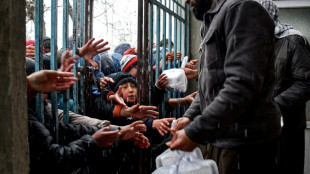
-
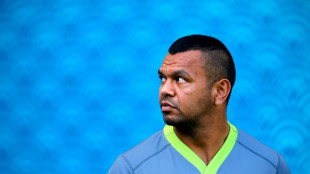 Veteran Wallaby Beale set for long-awaited injury return
Veteran Wallaby Beale set for long-awaited injury return
-
Syria's Druze take up arms to defend their town against Islamists

-
 Tesla sales plunge further in France, down 59% in April
Tesla sales plunge further in France, down 59% in April
-
US calls on India and Pakistan to 'de-escalate'

-
 Israel reopens key roads as firefighters battle blaze
Israel reopens key roads as firefighters battle blaze
-
Europe far-right surge masks divisions

-
 James will mull NBA future after Lakers playoff exit
James will mull NBA future after Lakers playoff exit
-
Ukraine's chief rabbi sings plea to Trump to side with Kyiv

-
 Australian mushroom meal victim 'hunched' in pain, court hears
Australian mushroom meal victim 'hunched' in pain, court hears
-
Lakers dumped out of playoffs by Wolves, Rockets rout Warriors

-
 Booming tourism and climate change threaten Albania's coast
Booming tourism and climate change threaten Albania's coast
-
US reaching out to China for tariff talks: Beijing state media

-
 Tariffs prompt Bank of Japan to lower growth forecasts
Tariffs prompt Bank of Japan to lower growth forecasts
-
Kiss faces little time to set Wallabies on path to home World Cup glory

-
 Serbian students, unions join forces for anti-corruption protest
Serbian students, unions join forces for anti-corruption protest
-
Slow and easily beaten -- Messi's Miami project risks global embarrassment

-
 Fan in hospital after falling to field at Pirates game
Fan in hospital after falling to field at Pirates game
-
Nuclear power sparks Australian election battle

-
 Tokyo stocks rise as BoJ holds rates steady
Tokyo stocks rise as BoJ holds rates steady
-
Bank of Japan holds rates, lowers growth forecasts

-
 'Sleeping giants' Bordeaux-Begles awaken before Champions Cup semis
'Sleeping giants' Bordeaux-Begles awaken before Champions Cup semis
-
Napoli eye Scudetto as Inter hope for post-Barca bounce-back

-
 Germany's 'absolutely insane' second tier rivalling Europe's best
Germany's 'absolutely insane' second tier rivalling Europe's best
-
PSG minds on Arsenal return as French clubs scrap for Champions League places

-
 UK WWII veteran remembers joy of war's end, 80 years on
UK WWII veteran remembers joy of war's end, 80 years on
-
Myanmar junta lets post-quake truce expire

-
 Rockets romp past Warriors to extend NBA playoff series
Rockets romp past Warriors to extend NBA playoff series
-
Messi, Inter Miami CONCACAF Cup dream over as Vancouver advance

-
 UN body warns over Trump's deep-sea mining order
UN body warns over Trump's deep-sea mining order
-
UK local elections test big two parties

-
 US judge says Apple defied order in App Store case
US judge says Apple defied order in App Store case
-
Seventeen years later, Brood XIV cicadas emerge in US

-
 Scorching 1,500m return for Olympic great Ledecky in Florida
Scorching 1,500m return for Olympic great Ledecky in Florida
-
Israel's Netanyahu warns wildfires could reach Jerusalem

-
 Istanbul lockdown aims to prevent May Day marches
Istanbul lockdown aims to prevent May Day marches
-
Moderna Reports First Quarter 2025 Financial Results and Provides Business Updates

-
 DEA Unconstitutional Marijuana Hearing - MMJ to File Emergency Injunction and Suit for Irreparable Harm
DEA Unconstitutional Marijuana Hearing - MMJ to File Emergency Injunction and Suit for Irreparable Harm
-
Formation Metals Announces Appointment of Adrian Smith to Advisory Committee

-
 Cerrado Gold Announces Q4 And Annual 2024 Financial Results
Cerrado Gold Announces Q4 And Annual 2024 Financial Results
-
Australian guard Daniels of Hawks named NBA's most improved

-
 Mexico City to host F1 races until 2028
Mexico City to host F1 races until 2028
-
Morales vows no surrender in bid to reclaim Bolivian presidency
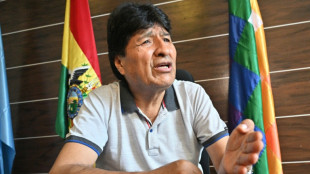
-
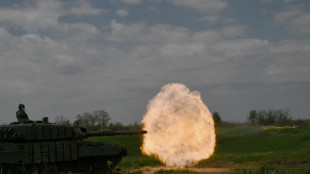 Ukraine, US sign minerals deal, tying Trump to Kyiv
Ukraine, US sign minerals deal, tying Trump to Kyiv
-
Phenomenons like Yamal born every 50 years: Inter's Inzaghi


'No longer safe' from quakes: fear of 'Big One' grips Istanbul
The helmet-topped engineer drove his pointy instrument into the concrete to test whether Durmus Uygun's building will crumble when the feared big quake finally strikes Istanbul.
"I'm pretty confident but my children aren't convinced, so we're having this test done," said Uygun, who lives in one of the Turkish megalopolis's poorer and more densely packed neighbourhoods.
"If the result is good, we will live in peace. But who knows where we will be when the earthquake hits? We may be at the supermarket or at work -- that's what scares us."
In his fifties and wearing a black beret, Uygun is far from the only one living in fear in Istanbul.
Turkey's cultural and economic capital is home to up to 20 million people, many still haunted by memories of the last "Big One" that struck just east of the city in 1999. More than 17,000 people died, including 1,000 in Istanbul.
The city has grown substantially since then, becoming a magnet for people attracted by its booming economy -- and oblivious to the active fault line running along its southern edge.
That changed on February 6, when a 7.8-magnitude earthquake killed more than 48,000 in southeastern Turkey and nearly 6,000 over the border in Syria, leaving entire cities in ruins.
A state of collective psychosis has since gripped Istanbulites, who have requested more than 140,000 checks of the type being conducted on Uygun's apartment building.
- Disaster a 47-percent chance -
By the municipality's own admission, nearly 100,000 buildings will collapse or be seriously damaged in the event of a 7.5-magnitude quake.
Fifty teams of engineers have been roaming the city since last month's disaster, measuring the quality of concrete and the width of steel reinforcement bars.
If the risk to the building is deemed "very high", it could be condemned to demolition and occupants forced to move out.
Some of Istanbul's southern districts lie just 15 kilometres (nine miles) from the North Anatolian Fault, which is distinct from the equally active East Anatolian Fault on which last month's quake struck.
Seismologists have calculated a 47-percent chance of an earthquake with a magnitude above 7.3 hitting Istanbul within 30 years.
Two blocks from Uygun's building, hardware store owner Ali Nezir has started selling whistles to locals who fear getting trapped under tonnes of concrete.
"People are scared," said Nezir, whose small shop is on the ground floor of a 12-storey tower.
- Whistles and water bottles -
Some residents say they have started storing biscuits and water bottles at the foot of their beds in case the quake comes in the middle of the night, leaving them trapped.
Uygun has prepared some emergency bags for his family containing enough to survive on while waiting for help.
Ugur Erisoglu, an Istanbul wholesaler, offers earthquake survival bags for 200 lira ($10) containing torches, blankets, medical kits and neck braces.
"We used to sell 1,000 a month," Erisoglu said. "We have received 15,000 orders since the earthquake, including 8,000 from Istanbul."
The sudden reminder of the threat hanging over Turkey's main city is forcing some to seriously contemplate moving home.
"There is strong demand for northern districts of Istanbul, further from the fault line, and for individual houses," said Mehmet Erkek, the general manager of Zingat, a real estate listings platform.
Searches have also exploded for cities such as Edirne and Kirklareli, located in a less quake-prone region 200 kilometres northwest of Istanbul.
- 'Always on alert' -
Nil Akat, a clinical psychologist, says she has been receiving patients "who are making very concrete plans to move out of Istanbul".
"Many no longer feel safe at home. They are on high alert, always on alert. Out on the street, they pick out safer looking sidewalks in case a building should collapse."
Akat said she spoke to some colleagues who told her: "Some (of our patients) can no longer think rationally."
This fear can grip anyone, without distinction for age or social class, she said.
Cisel Aktimur, a young Istanbulite who enjoys a breathtaking view of the city from her 12th-floor apartment, had been thinking of leaving for some time.
Last month's disaster has made moving a "priority", she said.
"Even if nothing happens to my building, I probably wouldn't be able to bear what I see," she said.
F.Bennett--AMWN